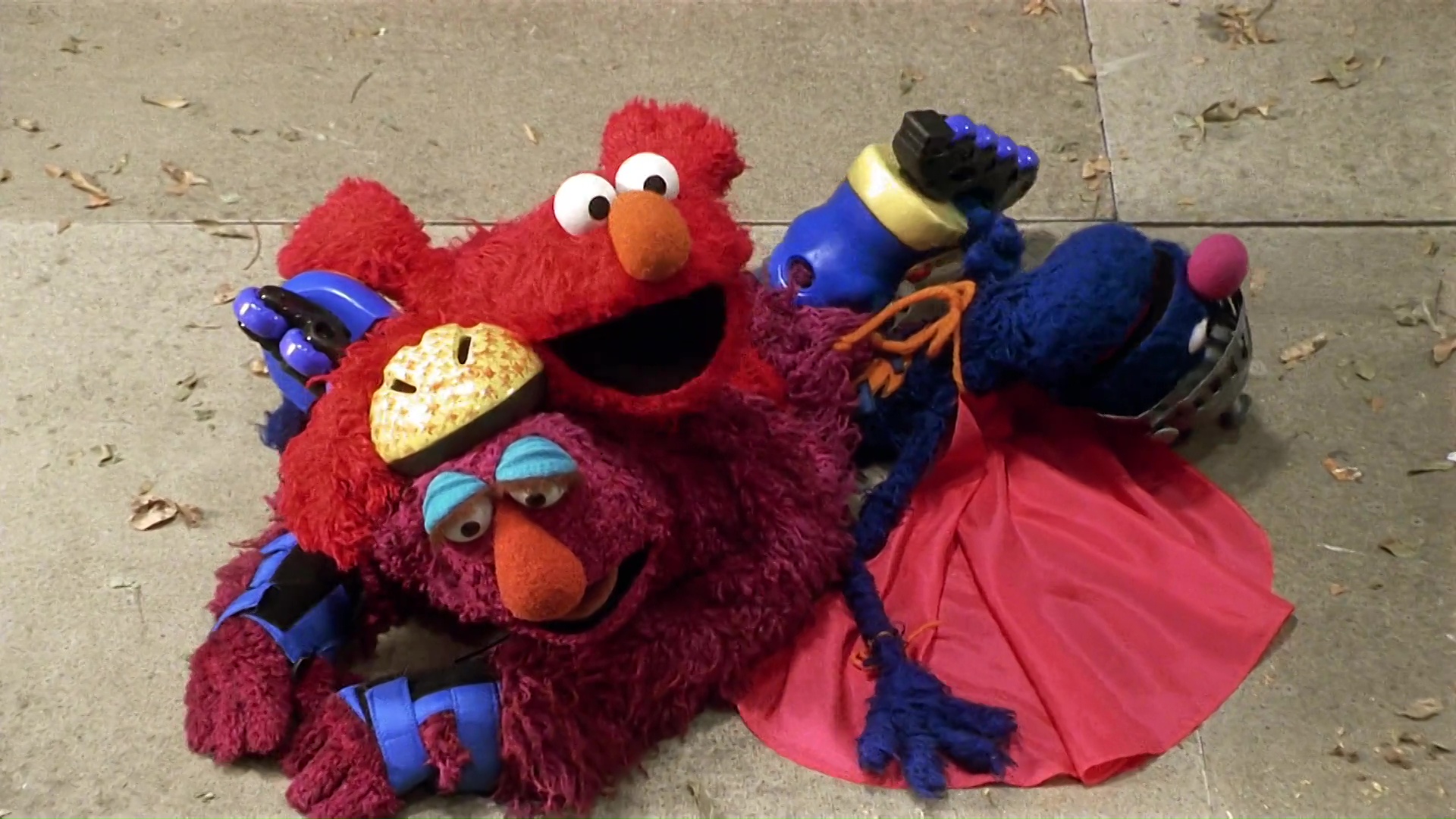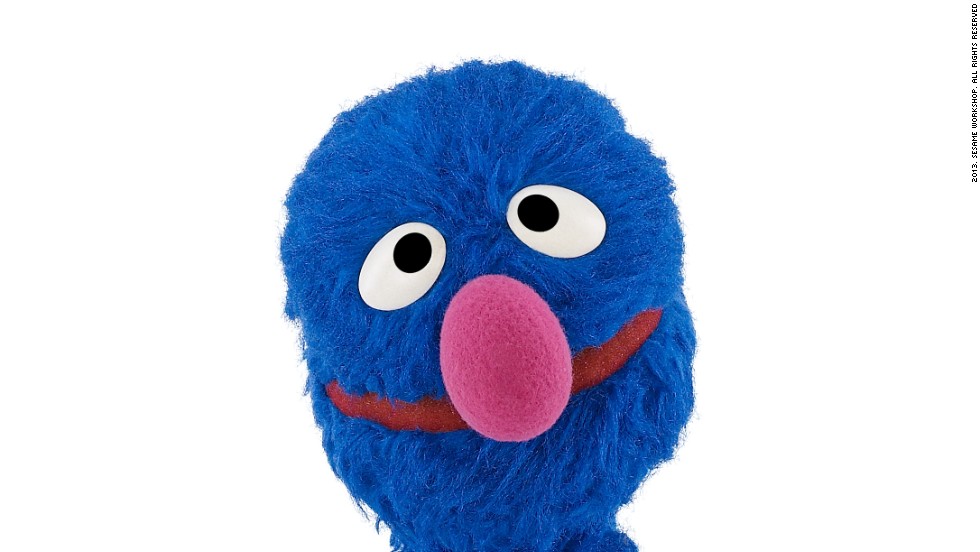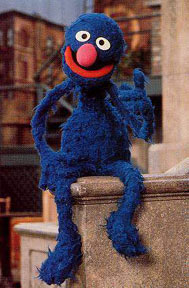
By the end of these books, lessons have been learned, obstacles have been overcome, and frowns and tears have turned into smiles and hugs. That’s true of real life, but particularly true of children for whom weeping uncontrollably is a default response to not getting their way. One of the things I love about Sesame Street books is the frequency with which they make use of the waterworks. In the kind of touch that makes these books special, she tells him that he might when he gets older, however, “maybe you will not,” but it will not matter because “you will always be good at being Grover.”

“Mommy, will I ever be good at batting?” Grover asks his mother hopefully. Then it’s Grover’s turn to burst into tears as he tells Big Bird about the Carrie-at-the-school-picnic trauma he’d just endured. Grover reduces Big Bird to tears, prompting him to yell out the book’s title in sadness and miscomprehension. “That stinks! That does not look like me at all,” Grover yells at the outsized yellow bird in a fit of rage. Sinking deeper into self-pity, Grover encounters a characteristically cheerful Big Bird, who shows him a picture he painted of him. “A big tear ran down (Grover’s) furry face,” continues this exercise in child-friendly misery. Walking home, Grover wonders aloud, “Why did all my friends make fun of me?” And that makes his inability to even get by all the more moving.īut, inevitably, we learn, “Grover was not a super batter.” He strikes out to end the game, at which point everyone, but everyone makes fun of him. He wants to be a super batter, liked by everyone, the star. With poignantly misguided optimism, Grover enthuses guilelessly, “I will be a super batter!” Things get even brighter when his mother gives him a surprise: a baseball bat to learn to play baseball with. Grover wakes up smiling, excited about the school picnic. The book begins, heartbreakingly enough, in a place of vulnerability, yearning, and openness. No book better illustrates the ineffable sadness of being Grover quite like 1986’s Why Are You So Mean to Me, which has a level of desperation not generally seen outside of the work of Todd Solondz or Fassbinder. Even the origin story for a superhero as goofy as Super Grover involves no small level of parental trauma and abandonment. That is just about the only contribution Grover’s deadbeat daddy has made to his son’s life. In The Exciting Adventures of Super Grover, we learn that Grover’s mother used “a funny old helmet that Grover’s daddy had brought home” to build Grover his Super Grover costume. Grover’s father, however, has never been seen on Sesame Street and has only been referenced in passing a handful of times in books over the course of Sesame Street’s nearly half-century history. Grover is never more than a humiliation or two removed from weeping, or running home to cry to his understanding and loving mother, who always offers a shoulder to cry on. In Grover Learns to Read, for example Grover is so terrified that his mother will stop reading to him at night that he keeps his literacy a secret from her, while in Grover Goes to School, Grover, in his poignant yearning to be accepted and fit in, allows himself to be manipulated and controlled by his new classmates until he once again devolves into tears. Grover’s neuroses predictably inform tellingly named books like Grover’s Bad, Awful Day and Grover’s Bad Dream but it also permeates books whose titles do not convey just how rooted they are in Grover’s haunted, precociously anxious psyche.

Grover continually refers to himself as cute, lovable, adorable and a friend because he needs to hear those comforting, validating, ego-enhancing words said aloud even if he’s the one saying them.

And because he wants so much, book after book finds himself not just disappointed but downright heartbroken, shattered. No, he always wants to be loved, accepted, embraced by everyone, wildly successful. It’s not enough for him to get by or do okay. But in the ’70s books - like The Monster at the End of This Book - he’s an even deeper, even sadder, even more relatable character.

On TV, Grover is a wonderful, deep, melancholy character with a real genius for pathos and sentimentality. In my dark studies, I have discovered that no Muppet suffers more poignantly, or extensively for the sake of your children’s moral education than Lovable, Furry Grover. The best, deepest Sesame Street books - which I have immersed myself in as the father of a 4-year-old boy - use the show’s iconic cast as gentle tools to teach sometimes harsh lessons. In the ’70s, Sesame Streetbooks didn’t have to worry about test audiences or smart-ass comments on social media and were consequently much freer to use the classic television show’s coterie of lovable puppets to teach important lessons about tough subjects.


 0 kommentar(er)
0 kommentar(er)
